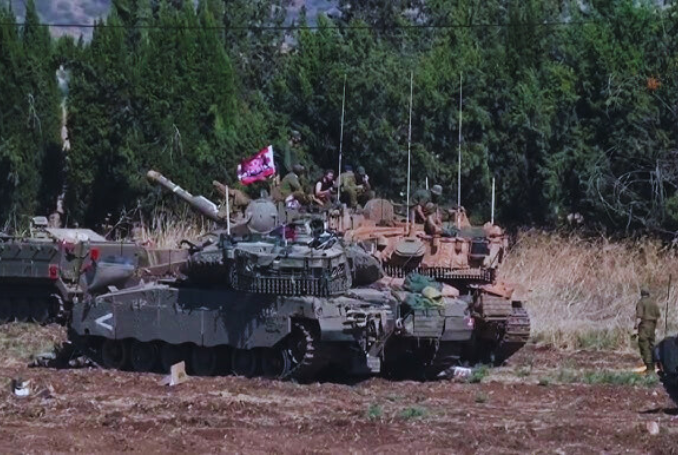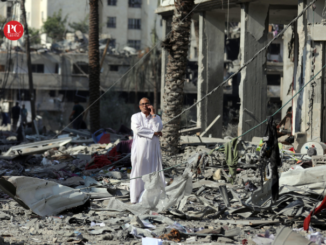
Laila Nicola warns that if Israel does not withdraw from south Lebanon as agreed, it could escalate tensions and legitimize resistance efforts, with broad legal and political consequences.
In her analysis for the Al Mayadeen Arabic news website, Laila Nicola explores the implications of Israel’s potential failure to withdraw its forces from south Lebanon after the 60-day ceasefire deadline, which is set to expire soon. The ceasefire, brokered by the United States, came into effect on November 27, but violations by Israeli forces continue, with reports of incursions into southern villages, destruction of homes, and retaliatory acts against Lebanese civilians.
Israeli media outlets, including Haaretz and Yedioth Ahronoth, have indicated that the Israeli military may delay its withdrawal, citing the Lebanese army’s alleged inability to secure full control of the area as a justification. Some reports even suggest that Israel is laying the groundwork for new military posts along the Lebanese border, with some posts planned for inside Lebanese territory, thus violating the terms of the ceasefire agreement.
Nicola warns that such a move would not only breach the ceasefire but also undermine the core provisions of UN Security Council Resolution 1701. This resolution, which calls for the disarmament of non-state actors in south Lebanon and the exclusive control of arms by the Lebanese state, could become impossible to enforce if Israeli forces remain in the region. She points out that Hezbollah’s commitment to the ceasefire was contingent upon the full implementation of the resolution, including the removal of Israeli occupation forces.
The continued Israeli presence in Lebanon, Nicola argues, would force Lebanon’s resistance groups to reassert their right to resist occupation. She emphasizes that international law and key UN resolutions legitimize the right of peoples under occupation to use all available means, including armed resistance, to free themselves from foreign domination.
Among the UN resolutions cited by Nicola is General Assembly Resolution 3314 (1974), which affirms the right of peoples under colonial or foreign occupation to struggle for their liberation through all available means, including armed struggle. Similarly, Resolution 37/43 (1982) asserts that peoples fighting for liberation from colonial or alien domination and occupation have the right to use force, as a legitimate form of resistance.
Further, Nicola highlights the provisions of Protocol I (1977) to the Fourth Geneva Convention, which specifically addresses armed conflicts involving peoples resisting colonialism and foreign occupation. This international legal framework recognizes the legitimacy of resistance movements, particularly in contexts where occupation and foreign domination persist.
Nicola also points to the broader political consequences of Israel’s potential failure to withdraw. By remaining in Lebanese territory, Israel would embolden resistance groups and disrupt any attempts by future Lebanese governments to assert full sovereignty over their land. The presence of Israeli military forces would intensify internal political tensions in Lebanon, especially as resistance movements are reinvigorated.
Although the current US administration under President Joe Biden is unlikely to pressure Israel into withdrawal, Nicola suggests that a future administration may find it in its strategic interest to push for Israel’s pullout. Such a move, she argues, would help the US consolidate political gains in the region and strengthen its influence in Lebanon.
In conclusion, Nicola warns that any continued Israeli occupation of south Lebanon, no matter how limited in scope, would reignite resistance efforts, re-legitimize armed struggle under international law, and potentially lead to greater instability in the region.
If Israel fails to honor the ceasefire, the political and legal ramifications for Lebanon and the broader Middle East could be significant, undermining any chance for a lasting peace and reinforcing the cycle of conflict.
(Translated and prepared by Palestine Chronicle Staff)








History, they say, never repeats, but it is wonderful at rhyming. Hizbullah was in laarge part the result of Israel’s refusal to withdraw from Southern Lebanon. I expect things haven’t changed any since then.